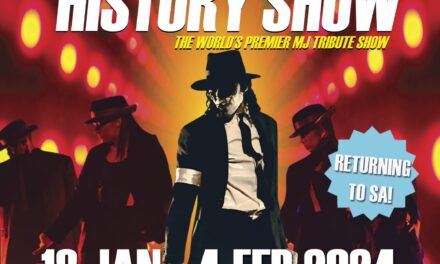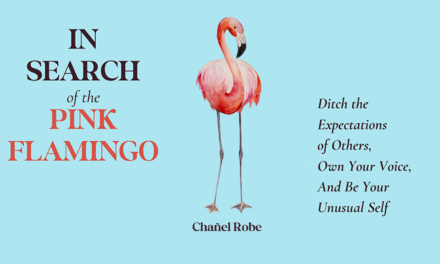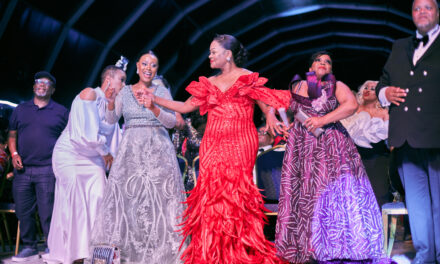
JOBURG STYLE Book Review
Graft – noun; meaning payoff for fraud/colloquialism; meaning hard work or effort.
This book has been interesting to review in that it has given me some insight into the socio-political and socio-economic mindset of the youngest economically active generation in South Africa. More specifically, it has given me insight into the minds of those youngsters who not only have managed to find decent work (in a workplace that is almost fatally opposed to them) but who have benefitted from having proper finances as well as proper parental influence. More on this later.
Now the subject matter that this book has attempted to cover is extremely complex and requires not just proper education based on critical thinking but also the wisdom of years and real-world experience if one is to make comparisons and do an analysis for the purposes of providing solutions to the current maladies that plague South Africa under the ham-fisted governance of the ANC. I am sad to report that this author, while having an excellent education does not possess the wisdom of years nor the requisite experience to be able to juxtapose black success during apartheid with black success in a post-apartheid South Africa. In fact, he displays a naïve idealism that is peculiar to well-educated students the world over and borders on cockiness where this attitude is couched in his achievements which he somewhat self-importantly elucidates on pages 265 and 266.
Now before I get into the book itself, I want to talk about what the author has gotten right as some may feel that I might be attacking the hapless youngster needlessly and harshly. He praises the virtues of hard work, he believes in a good solid education, he believes in traditional family values, he is quite clearly a staunch proponent of the market economy, he is opposed to socialism and woke-ism, he vehemently opposes and fearlessly criticizes the ANC in its current form along with its ruinous policies, he rejects victimhood as a mindset, he rejects racism as a default social policy, he believes in meritocracy and he is painfully optimistic. In other words, he is a black conservative. But what I believe to be the most important facet of this book is his willingness to attempt to discuss the future of South Africa WITHOUT the hot mess that is the ANC, something that most South Africans caught knee-deep in the treacle of their apathy fail to address meaningfully. Also, quite importantly, he rails against the sheer, incomprehensible stupidity displayed by most South Africans when it comes to using their hard-earned right to vote especially when that stupidity has contributed quite significantly to the now dire state of Mzansi. So, he understands that responsibility falls to both government and society. These are all admirable points and I believe that as he matures, he will produce more impactful work as an author.
Now to be able to draw from any given individual’s successes during apartheid it is actually vitally important to not only understand it from an academic viewpoint but to have lived it to some extent. It is not sufficient to google someone’s biography and to then dispassionately retell it. It also does not help to have some brief anecdotes thrown in by mom or dad, further hitting home the already obvious fact that apartheid was a particularly wicked piece of social engineering. In my opinion he needed to start with understanding what apartheid was (it was an economic policy first and foremost) and why the Afrikaners were so dependent on it to cover their insecurities and fears as a people. He needed to research in detail the full impact of apartheid on all races and not just the blacks and most critically what the socio-economic outcome of apartheid was. Once he was done there, our author needed to then compare apartheid with segregation in the USA as they shared a significant number of commonalities. The thing with both apartheid and segregation is that as social policies, they were clearly and starkly defined. Quite literally, you KNEW who your enemy was. Those subject to it knew what they were facing and subsequently adapted a survival technique to dealing with the privations such a policy imposed on them. It is in this survival technique that many people found the strength and will to succeed. And it is only from understanding this background that the author could have made a start. Critically, he focused on struggle heroes who garnered success during colonialism and NOT during apartheid. This is especially true of the founders of the movement. In addition, he should have interviewed at length some of those whom he admires (e.g., both Mbeki brothers, Trevor Manuel and any number of black businessmen and women who were successful during that period) who were involved with the ANC during its halcyon days and gleaned wisdom from them instead of superficially repeating what was stated in the papers, talks, research and dissertations he copiously mentions in the bibliography. Subsequently, there are really no lessons (other than the obvious) from past heroes that we can truly apply to post-apartheid South Africa that will give us a platform from which to build or rather, in this case, repair the mess that the ANC have wrought.
In doing an in-depth analysis of both apartheid and segregation our author would have picked up on the good that came from those twin evils. Thomas Sowell, whom the author quotes liberally but almost without context, wrote and spoke at length about the improved social cohesion in black communities, the values of tradition, family and education and the centers of black excellence that flowed from and thrived during those times. Closer to home we could look at District 6, Sophia town and the early days of Soweto to see reflections of what Sowell spoke of. The townships had schools of excellence, vibrant and profitable trade, accessible and excellent healthcare and social culture bursting with life and ubuntu. Why? Because black people were forced to stand together as they faced a bigger existential threat if they didn’t. And I don’t use the term ‘good’ loosely either. However repressive apartheid was, black people of the time had an identity, culture, purpose and family values which made them incredibly strong, resilient, extremely resourceful, driven and above all, forgiving. And it is abundantly clear that his parents, to their eternal credit, have admirably passed these values on to him. With the advent of ‘freedom and democracy’ South Africa has lost all moral and ethical moorings. And I believe that this is the impetus that compelled Phumlani to write this book. He knows what South Africans, in particular black South Africans, need to do for the country to regain its place as the premier African nation. As a young, educated and economically active black male he can clearly see the effects of what the world’s most liberal constitution is having on the majority of South Africa’s youth and the population as a whole. But unfortunately, he does not quite know how to get the message across effectively specifically when it comes to the details of how its going to get done. By his own admission, authors like Cronje, Louw, Mbeki and Sowell do a better job of explaining how the change should occur.
The last 2 chapters essentially becomes a tautologous tossed salad. These chapters at turns repeat the dictums of hard work, proper education, the advantages of a market economy and traditional values like a scratched vinyl on a turntable with a worn motor, then pits these against not undeservingly harsh criticisms of the ANC and its loose wizard sleeved ruinous policies all the while touching on solutions with all the efficacy of a quadriplegic cardio-thoracic surgeon performing a triple bypass. To crown it all, he appears to throw his hat into the political circus ring as a potential president. This is not a good look for our young author as I am of the firm conviction that because of his youth and relative inexperience he will be consumed in this arena by the, er, body politic like sharks in a feeding frenzy.
Now the definition of graft, mentioned at the beginning of the review, encapsulates this book in my opinion. It is a comparison between corruption and the redeeming principle of hard work. It covers both the apartheid and post-apartheid eras which while very different socially seem to have some stunning similarities politically and economically. Quite simply put, in a divided country only a few elites’ profit. This is what I believe Phumlani is trying to distill and provide solutions for. However, he does it with all the finesse of a young bride cooking her first gourmet meal for her husband and not understanding the resultant bout of food poisoning. It sort of looks good, but because of an improper grasp of the intricacy of ingredients, flavours and cooking temperatures, a near radioactively bad dish is delivered.
Now as this is his first book, I am not about to write him off. Excuse the pun. He has the courage of youth and a fierce patriotism and sense of fairness and justice that I believe will take him far as an author. He genuinely wants to be part of the solution. He is unjaded, unjaundiced and fearless. And he is not afraid to have the conversation or the suitably robust discussions that the old political elephants in the room only appear to welcome. However, he needs to temper his passion for his cause and harness it with efficacy as his over-confidence will trip him up. But overall, I applaud the book as it takes a stance for ALL young South Africans, and I hope that many youngsters will engage him on social media so that he gets to pass on his healthily infectious brand of conservative thinking.
In conclusion then, is this a book worth owning? I have my own criteria, and these may differ vastly from those of Joe Public. But my ownership criteria can be listed as follows:
- Does the subject matter grasp or challenge you?
- Does the book evoke a response while being read?
- Does the book evoke a response after being read?
- Does the book affect or add to your life?
- Is the book worth owning?
So where does Lessons from Past Heroes score on my metrics. I give the book a 1/5 in that it evoked a response while being read but not in a good way because it was not cohesive and offered neither lessons nor solutions to the country’s woes. I do concede that the subject matter is extremely difficult to write about. If Phumlani researched it a bit more in depth and provided clear solutions, he would have written a longer book, but it would have had far more impact. Nonetheless, there is always a steep learning curve when someone has the courage to not only speak about but write about contentious issues affecting an entire country. So, despite the low score, I greatly encourage a reading of the tome, especially for the younger generation and the author’s peers. And Phumlani gets my vote because of his courage and vision. Given experience and wisdom he will flourish as an author. I trust he takes the critique to heart.
Book review by Slartibartfast.



























